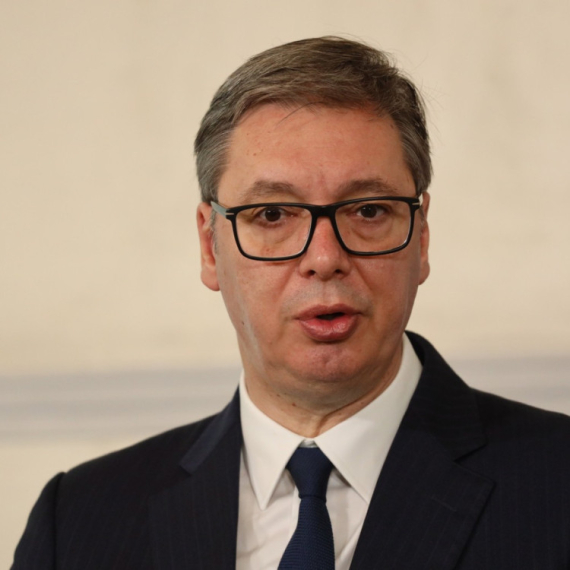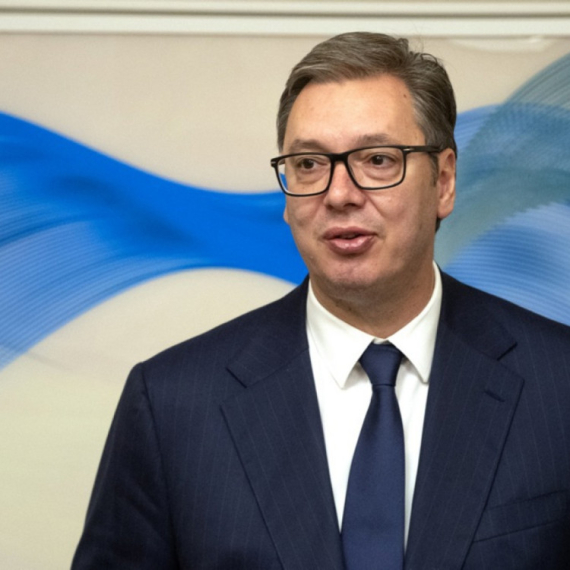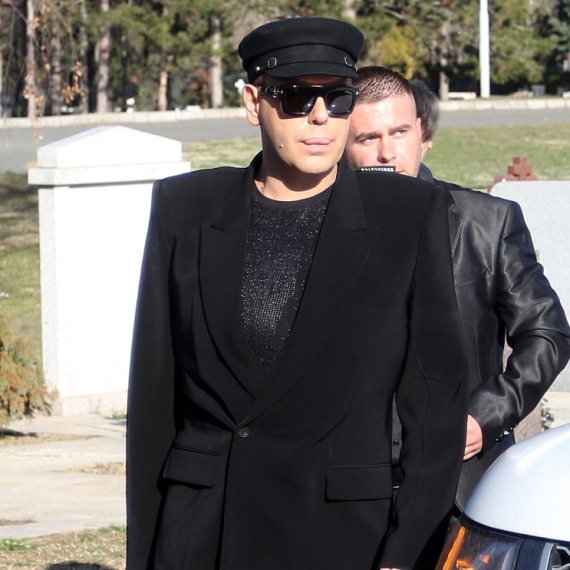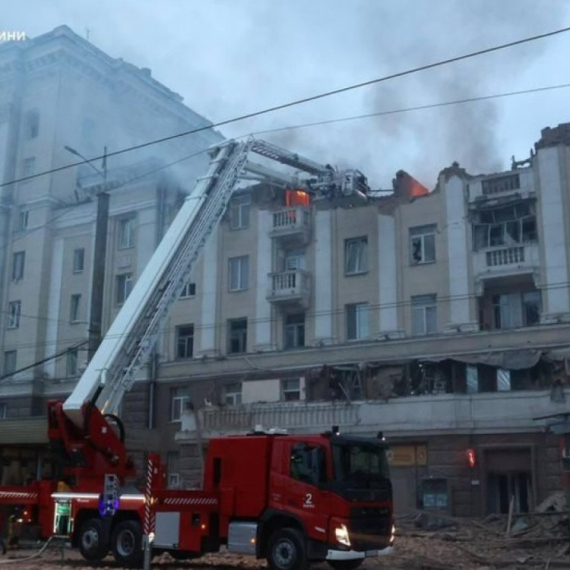“Future Serbian government must know what needs to be done”
Serbian government’s EU Integration Office Director Milica Delević stated on Wednesday that the new government needed to be constituted as soon as possible.
Wednesday, 13.06.2012.
15:38

Serbian government’s EU Integration Office Director Milica Delevic stated on Wednesday that the new government needed to be constituted as soon as possible. She added, however, that the new government should be formed in a way that would make it clear to all parties in the ruling coalition what kind of decisions the executive bodies in Serbia were expected to make. “Future Serbian government must know what needs to be done” “The government should be constituted as soon as possible, not just because of European integration but also because there is a lot of work that needs to be done in the country. On the other hand, the government should be prepared to make decisions relevant to the work it is expected to perform,” Delevic told Tanjug. According to her, the government needs to start from the documents of the European Commission and the conclusions of the European Council and the EU Council of Ministers, and to follow clearly defined priorities. “The reform process needs to continue, which is also important for the process of EU integration, but it is even more important for citizens because of the reform path they want to see. The citizens do not want to hear empty phrases but to see a concrete action in the country that will make the changes happen,” Delevic explained. According to her, this will be the message which the EU representatives would send to Serbian President Tomislav Nikolic during his stay in Brussels. The key priority for the continuation of talks on EU membership lies in further progress in the normalization of Belgrade-Pristina relations and implementation of agreements reached so far, as well as the achievement of agreements on energy and telecommunication and support to international missions performing their mandate in the entire territory of Kosovo. “The EU is setting conditions in an atmosphere of disagreement as to whether it recognises Kosovo's unilaterally declared independence or not, the prevailing climate is that of an agreement as regards the region's necessity of continuing its EU path and the need for cooperation between all relevant factors, and this is the position from which the EU is monitoring the fulfillment of conditions,” Delevic underscored. In addition to this, Brussels expects Serbia to respect democratic principles, rule of law, protect human and minority rights and international obligations it took on, to contribute to regional cooperation, set up a functional market economy that would be able to live up to its competition in the EU and implement the EU's legal heritage in various sectors. Nevertheless, she did not wish to speculate as to the chances of Serbia getting the date of EU accession talks until the end of the year, which was the ambition of the former government. “I believe that a more important matter now is what we can do to achieve this as soon as possible instead of assessing whether there is time to do so and how far we could get with a half or two-thirds of work done,” noted Delevic. She pointed out that the EU integration process was not standing still during the election campaign and talks on the forming of the government, bearing in mind that the EU Integration Office had done a lot of work that could not be done during the technical government. Delevic explained that the EU Integration Office had monitored the implementation of laws, informed the EC about the things that had been done, taken part in technical meetings of subcommittees in charge of the implementation of the Interim Trade Agreement and hosted several EC missions. Milica Delevic (Tanjug, file) Tanjug
“Future Serbian government must know what needs to be done”
“The government should be constituted as soon as possible, not just because of European integration but also because there is a lot of work that needs to be done in the country. On the other hand, the government should be prepared to make decisions relevant to the work it is expected to perform,” Delević told Tanjug.According to her, the government needs to start from the documents of the European Commission and the conclusions of the European Council and the EU Council of Ministers, and to follow clearly defined priorities.
“The reform process needs to continue, which is also important for the process of EU integration, but it is even more important for citizens because of the reform path they want to see. The citizens do not want to hear empty phrases but to see a concrete action in the country that will make the changes happen,” Delević explained.
According to her, this will be the message which the EU representatives would send to Serbian President Tomislav Nikolić during his stay in Brussels.
The key priority for the continuation of talks on EU membership lies in further progress in the normalization of Belgrade-Priština relations and implementation of agreements reached so far, as well as the achievement of agreements on energy and telecommunication and support to international missions performing their mandate in the entire territory of Kosovo.
“The EU is setting conditions in an atmosphere of disagreement as to whether it recognises Kosovo's unilaterally declared independence or not, the prevailing climate is that of an agreement as regards the region's necessity of continuing its EU path and the need for cooperation between all relevant factors, and this is the position from which the EU is monitoring the fulfillment of conditions,” Delević underscored.
In addition to this, Brussels expects Serbia to respect democratic principles, rule of law, protect human and minority rights and international obligations it took on, to contribute to regional cooperation, set up a functional market economy that would be able to live up to its competition in the EU and implement the EU's legal heritage in various sectors.
Nevertheless, she did not wish to speculate as to the chances of Serbia getting the date of EU accession talks until the end of the year, which was the ambition of the former government.
“I believe that a more important matter now is what we can do to achieve this as soon as possible instead of assessing whether there is time to do so and how far we could get with a half or two-thirds of work done,” noted Delević.
She pointed out that the EU integration process was not standing still during the election campaign and talks on the forming of the government, bearing in mind that the EU Integration Office had done a lot of work that could not be done during the technical government.
Delević explained that the EU Integration Office had monitored the implementation of laws, informed the EC about the things that had been done, taken part in technical meetings of subcommittees in charge of the implementation of the Interim Trade Agreement and hosted several EC missions.
























































Komentari 0